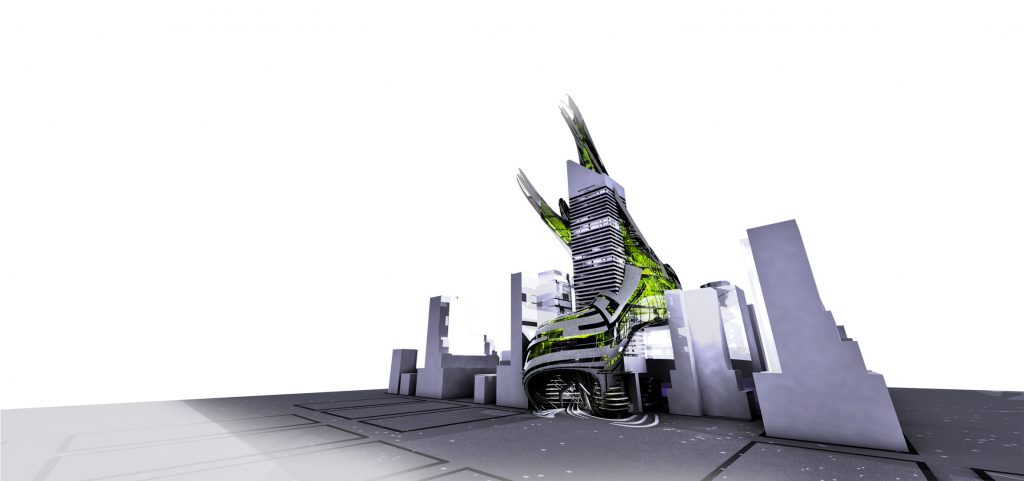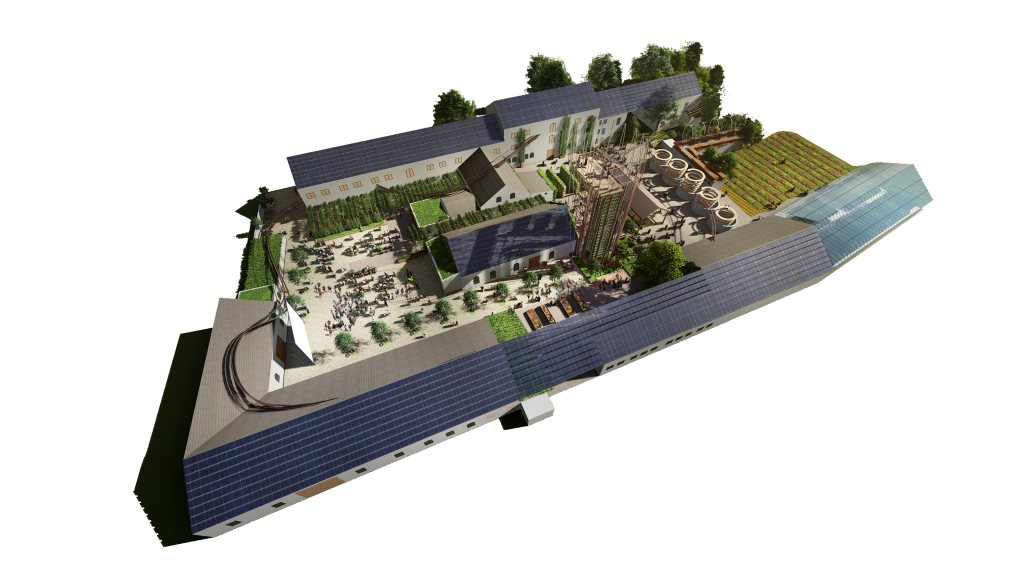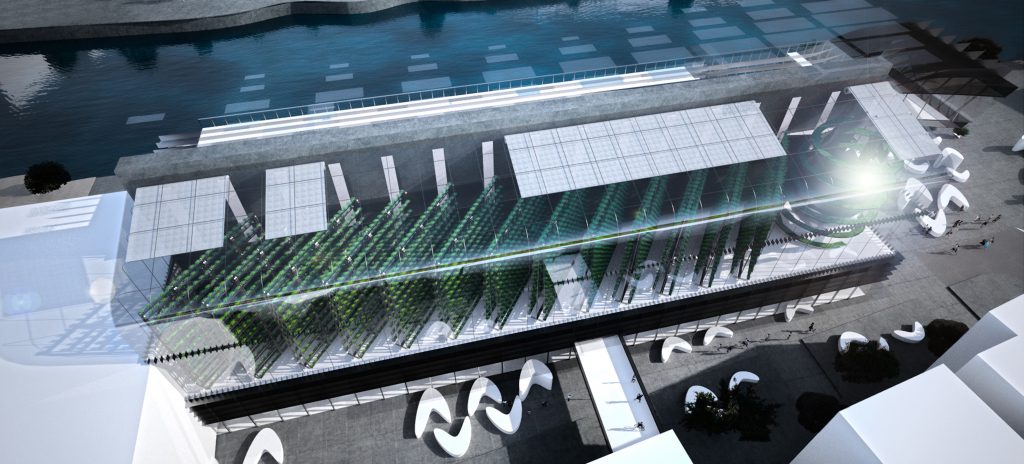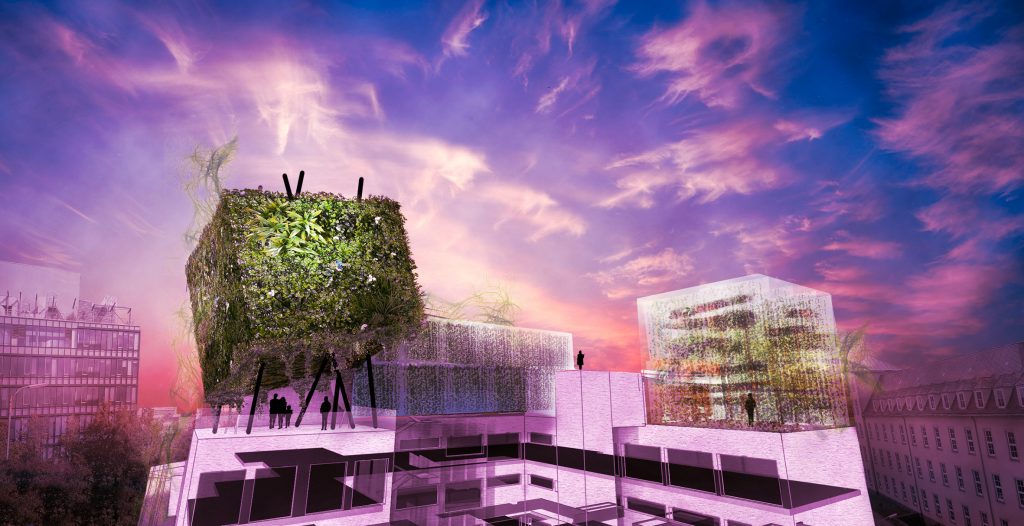How agriculture sparked the sense of personal value
The invention of agriculture approx. 11.000 years ago allowed us to develop the beauty and enchanting parts of life – creating meaning and value, ethics and activities beyond hunting and gathering, from art to music, from philosophy to science, says Daniel Podmirseg VFI.

One of the most significant revolutions in the history of mankind is the moment in which we started growing our food. It is in the cradle of agriculture where we started nurturing the fruits of leisure such as culture and arts, instead of fully focusing on sharpening our spears for the next hunting expedition. It altered our diets, and how we treat each other.
A lot has changed since, and food production became one of the biggest environmental issues, but also the spark of global social inequalities.
Vertical Farm Institute (VFI) is one of the partners in the euPOLIS mission who will invest their knowledge and experience to help empower citizens to embrace healthier lifestyles by, among other things, choosing locally grown and produced foods. This means less packaging, less transportation, less noise…
Daniel Podmirseg, the Head and Founder of the VFI, speaks about the steps and benefits of urban vertical farming.

Food production will be part of daily urban life again, you say. But we can’t simply wake up tomorrow and start our farm or a garden. We have neither space, nor the knowledge, and sometimes, permission to do it in urban environments. What would be the first steps to do that?
Dissemination and discussion are important. Citizens have to understand how fragile, energy-intense, land-consuming, and oil-dependent our food system is. No individual can solve the problem of food security, it takes a massive collective wake-up. Get-togethers of engaged people, plus knowledge of the status quo of world agriculture and prosperous pioneer-projects all around the globe will trigger both political engagement and hands-on solutions within the urban environment.
In what ways can cities’ officials or local community representatives empower those steps, make room for them?
With every square-meter of agricultural use next to a consumer, you produce a long list of positive externalities – such as reduction of land use, deforestation, fertility loss, water consumption, oil dependency, etc. Urban farming and especially vertical farming is something not immediately applicable on a big scale, but from low-tech-implementations (which affect interest and engagement) through high-tech-indoor production methods, to the integration of food production areas or spaces in masterplans and regulations, engaged citizens are necessary to fulfill future needs in food supply for our children.
Many people don’t have the time to cook, not to mention, grow their own food. How and why should we alter our mindset?
Food production is intense work. Then the invention of agriculture approx. 11.000 years ago allowed us to develop the beauty and enchanting parts of life – creating meaning and value, ethics, and activities beyond hunting and gathering, from art to music, from philosophy to science. It opened up the way to the division of labor where each human being was allowed to seek his own and individual meaning of life. To say: not everyone has to be an (urban) farmer.
What kinds of foods are we talking about? What can we grow to decrease pollution made by transportation, packaging?
On every calorie we’re consuming – along the food supply chain – additional 15 calories are needed to close the gap from production to consumption. Food-related traffic within the urban environment – different from city to city – is estimated from 25 – 35% with all the negative effects such as pollution, noise, accidents, loss of quality space, infrastructural costs, etc.

This kind of change it seems can only come accompanied or followed by some other, rather political and social changes. Does that mean we are heading towards the self-sufficient individual or a commune?
For some, this is an attractive picture – autarchy, independence, etc. It’s not necessary to start from scratch or reversing our food system for 180 degrees. From my perspective, this is not necessary. But a remarkable part of our food items we could produce there where we live – in the heart of the city next to the consumer.
Tell us about the VFI philosophy, your goals?
The vertical farm institute is a private research company fully dedicated to developing new building typologies for urban vertical food production. The mission is to radically reduce land-, water- and energy consumption.
Our partners support the VFI with unique expertise regarding building- and control systems, architecture, and energy, biology, and plant physiology, also energy production and plant factory operators. Only the combination of customized architecture, urban planning, resource-conserving technologies, and applied plant physiology disclose the potential of vertical farms to be important elements for sustainable food production with a promising future.
Would this switch contribute also to more fair societies and help eradicate famine?
Positive effects, yes. I think the more understanding we have of where our food is coming from and who the producers are, the stronger the societal network can be. Urban vertical farming can strengthen local socio-economic networks which make cities resilient. To the second question: Urban vertical farming can be extended to reach this goal – with precise measures and decisions on needed cultivars/products, the choice of the right cultivation- and production methods.
How else could citizens benefit from vertical farming in the future?
Vertical farming beyond the building is something where science, technology, plant physiology, art, and engagement come together. It visualizes – in the development and operation period – how diverse our society is. Everything is linked.
A. Malusev



